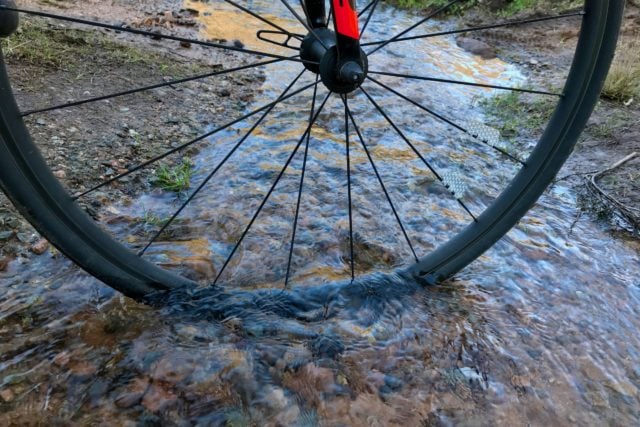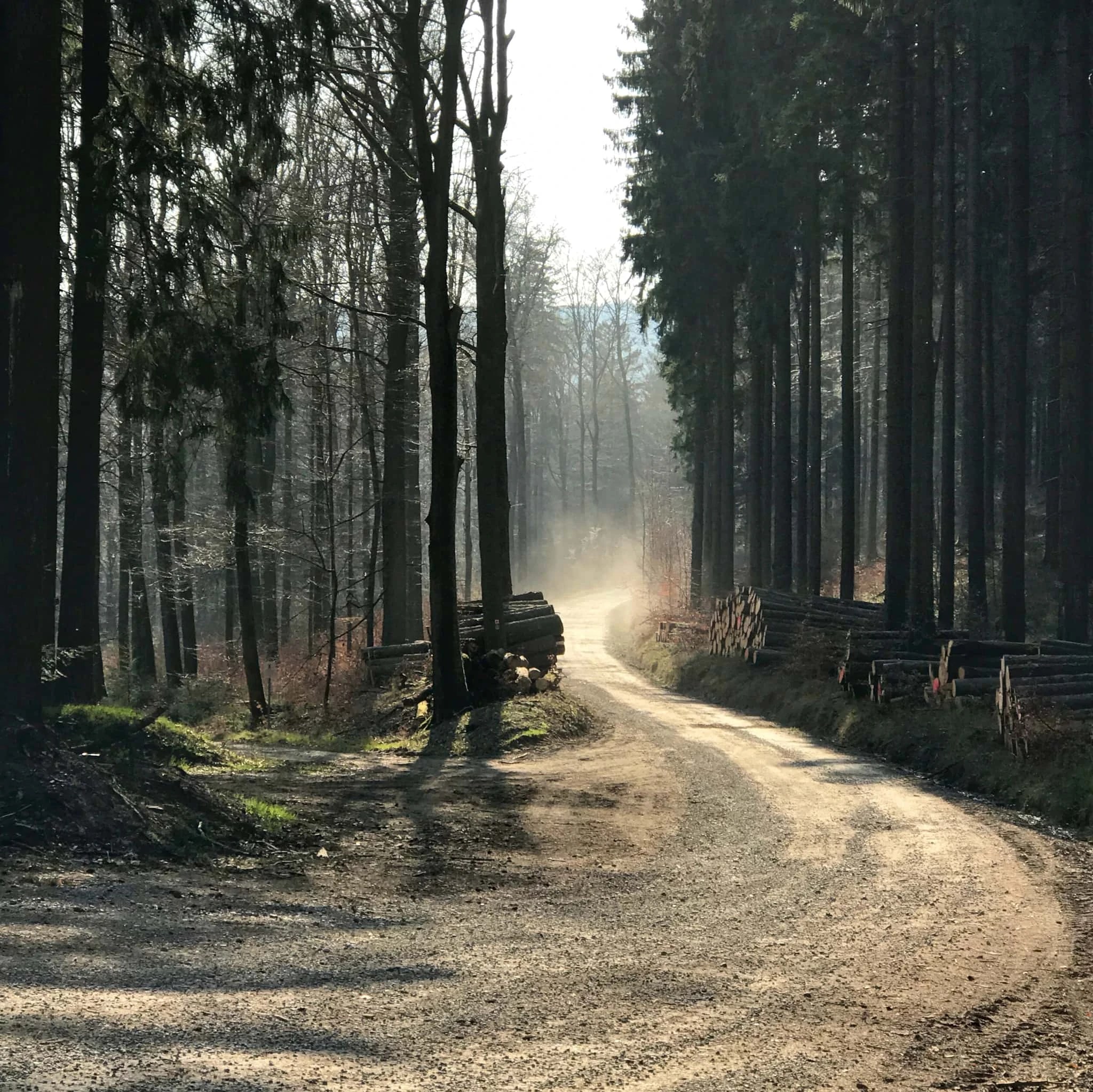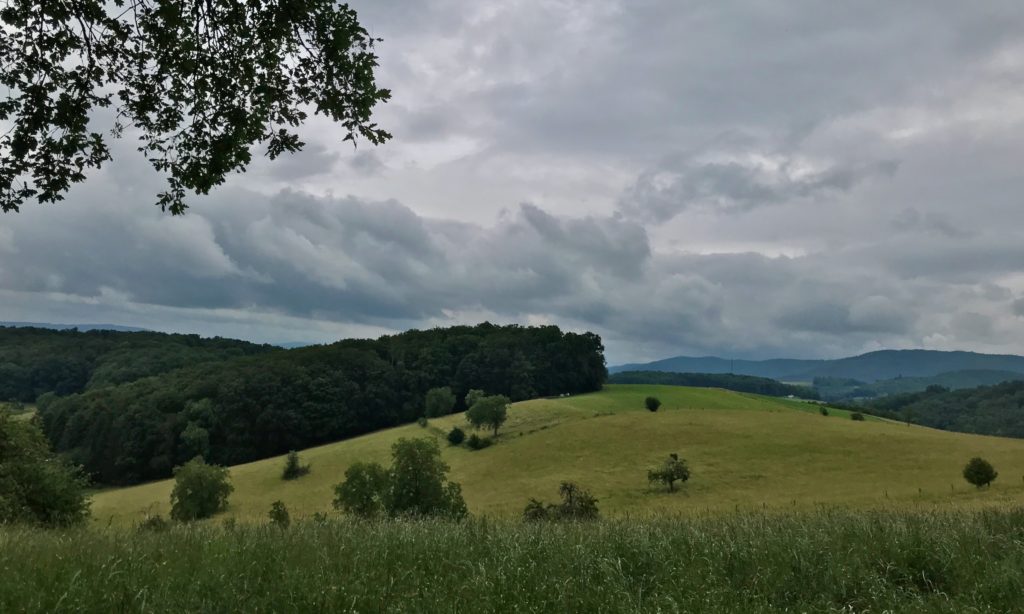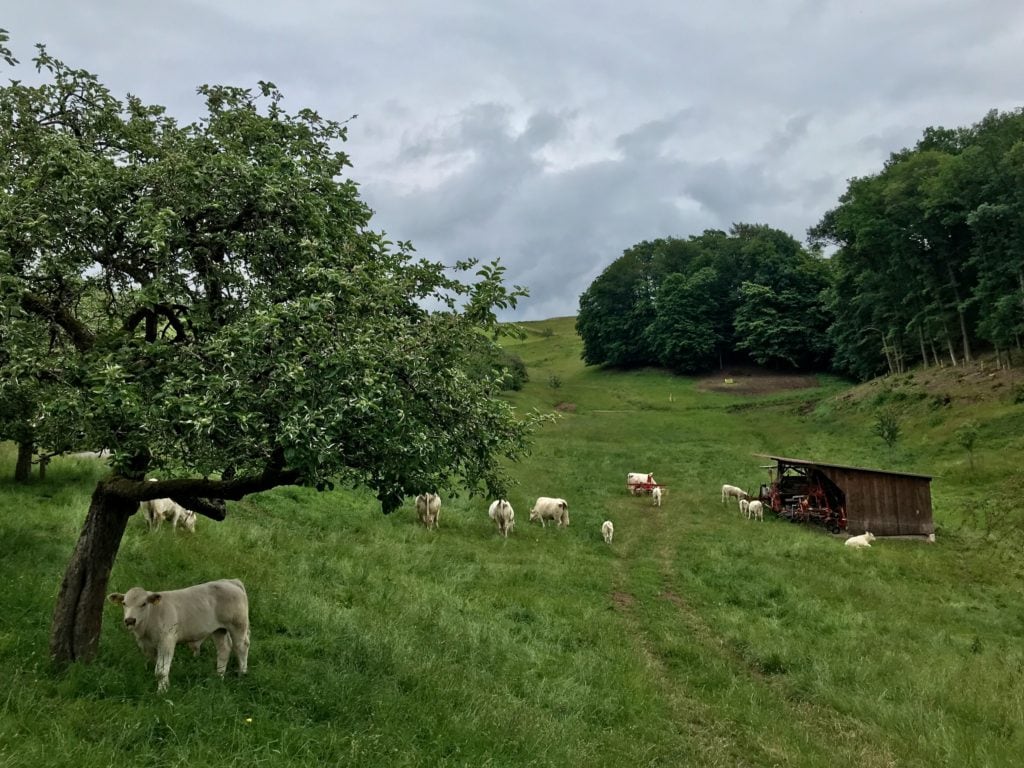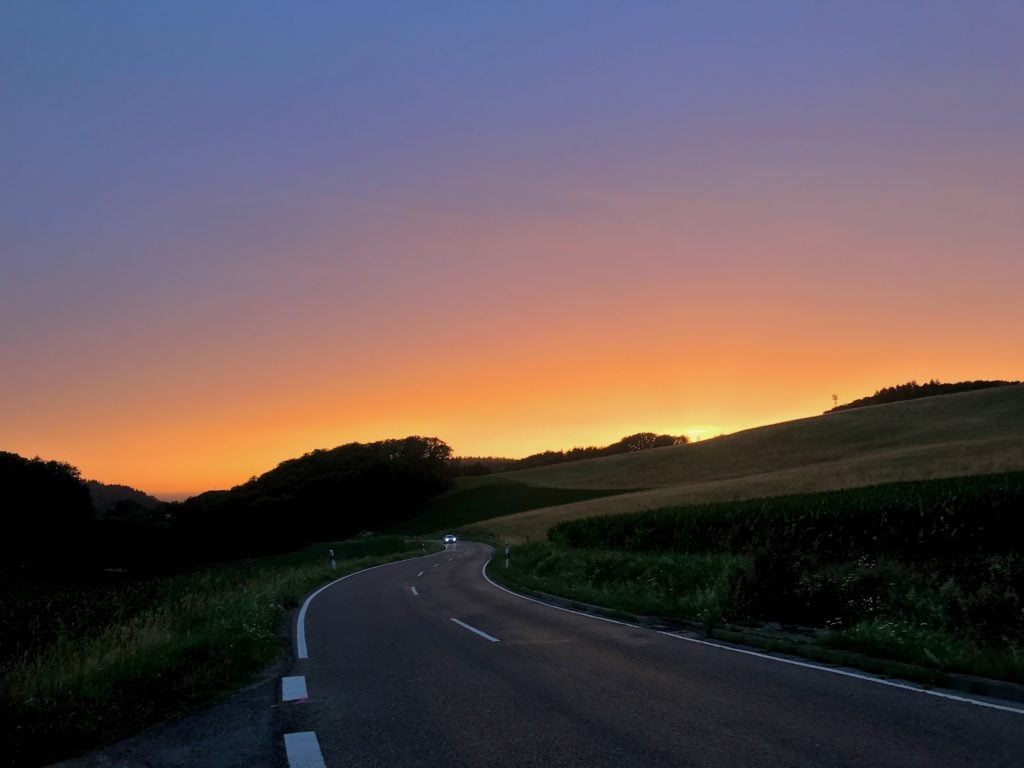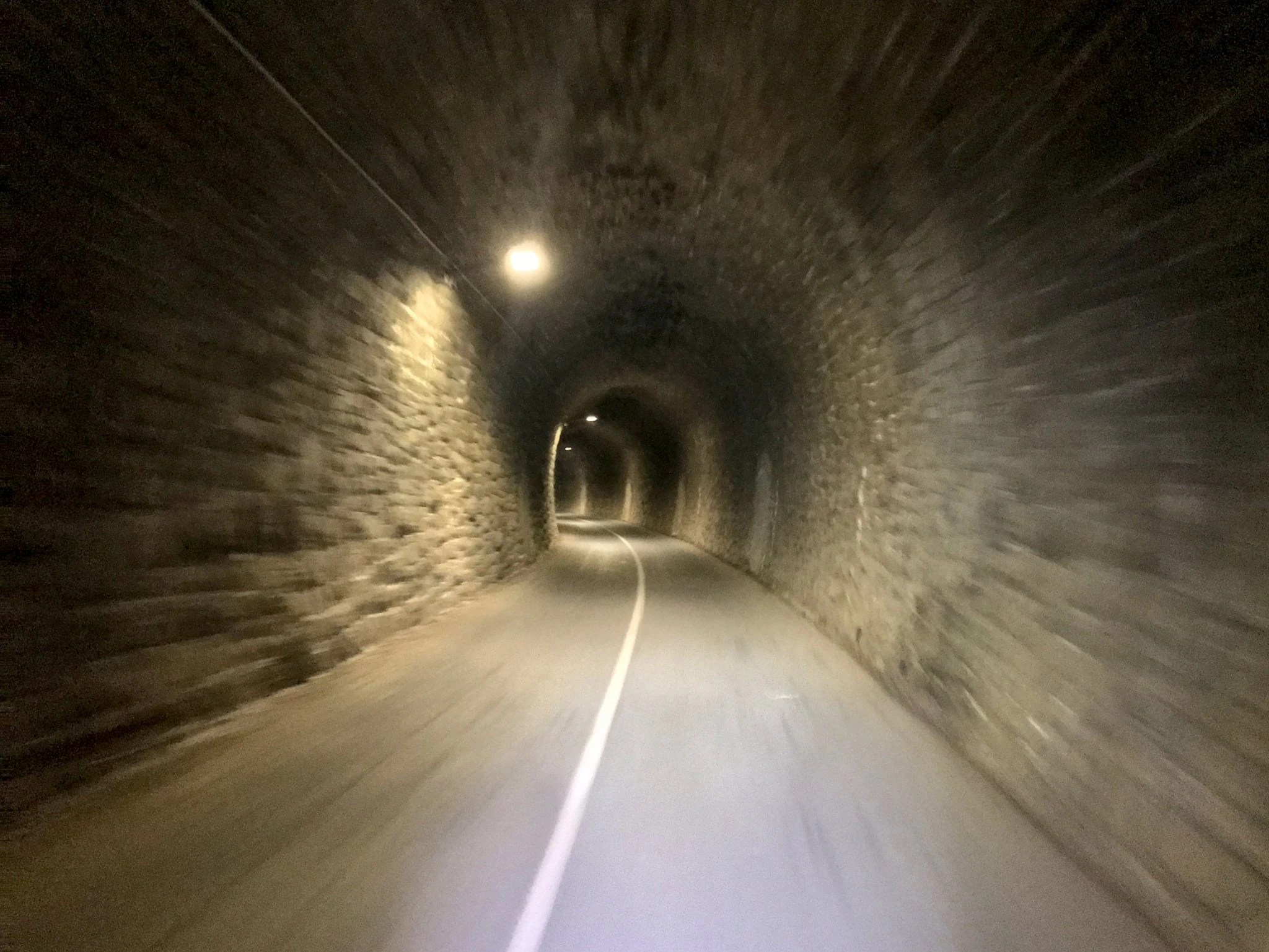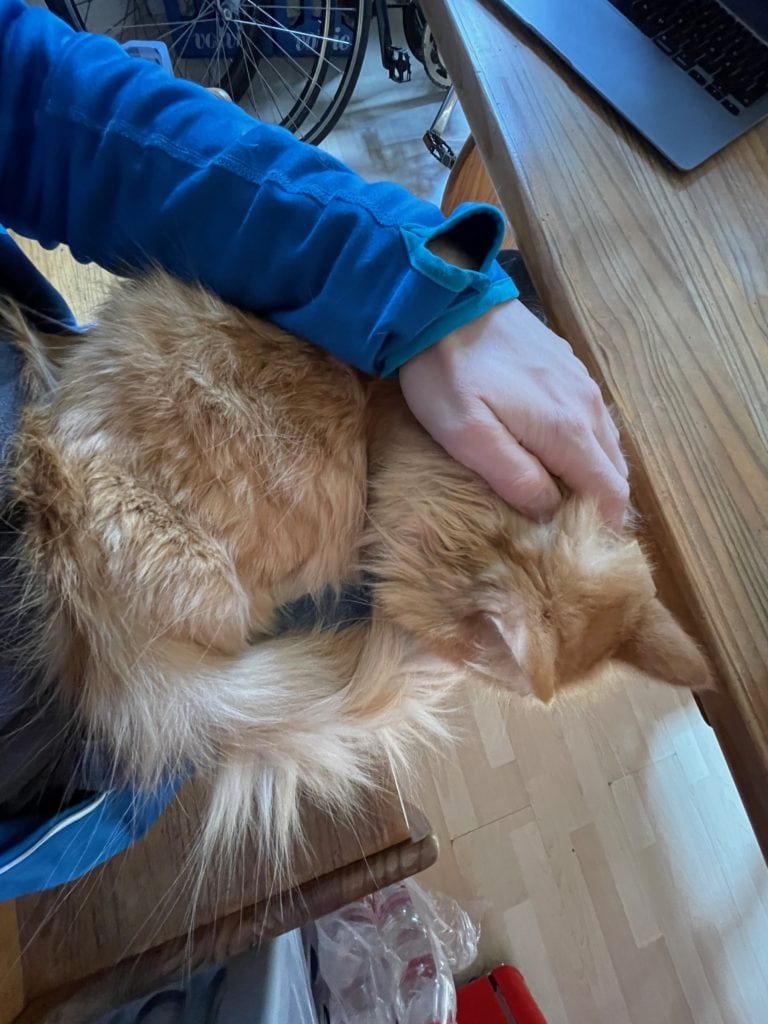Something was bothering me. Thought after thought materialized beneath my fingertips. Almost exactly twelve months since my first write-up for the VeloClub community, frustration led to a rant. — Andy van Bergen kindly nudged me into giving everything a once-over before publishing it. Let's call this a one year anniversary.
Freedom
This one thought had been picking away at me all week:
Freedom. Freedom of movement. Freedom to roam. Freedom to go anywhere, at any time — alone, or with anyone.
About a year ago Germany experienced its first COVID-19 lockdown. One year in which we, along with everybody else, have endured limitation and deprivation of what is a universally guaranteed, fundamental human right.
Respect
Article 1 of the International Bill of Human Rights states that we “should act towards one another in a spirit of brotherhood.” — This implies that we don’t act egotistically. That we must not endanger those around us, locally, regionally or globally.
A situation like the one at hand affects us all. Therefore it demands our respect — towards the seriousness of this global pandemic as much as towards one another.
When it has been reliably proven that the best, immediate medicine against the current situation is to be careful, to reduce the chance of the virus spreading further, we quickly fall into the trap of seeing isolation as the ultimate remedy.
But it is not that simple.
Nature
Isolation is against human nature.
We want to share, we want to be seen, we want to mingle. Or at least: We want to behave as we do on our own terms — not when and how someone tells us to. It is in our nature to seek for and use whatever opportunity presents itself to (re)gain at least some freedom.
Oversimplifying, diseases like COVID-19 are not that different. They will find whatever way there is to escape, infect and spread further. And they will adapt through mutations. Eventually and repeatedly.
Isolation is never perfect.
What we can do against diseases such as COVID-19 is to adapt as well. It’s a constant battle and always has been.
Defense
Our immune system has evolved forever. It is our active defense, while isolation is passive. We have likely always tried at both, in many aspects of our lives: Isolation from danger by building walls around places we live in or by banning unfortunate souls to leper colonies. And we have a long tradition in crafting weapons and training ourselves in their use (with all the unhealthy consequences thereof).
For less than two centuries, vaccination exists in its current form. This new weapon helped us boost our immune system in unprecedented ways — artificially and systematically. Suddenly, we were able to fight diseases we had been helpless against, eradicating or at least significantly suppressing them, globally.
However, until a vaccine is available, isolation continues to be a defensive method of choice. And it is as much in our nature as it runs against it: We hide and protect as much as we want to care and be cared for. Intuitively we strive to help each other, and we call for help. Seeking shelter in the safety of numbers is another defensive method, albeit one that doesn’t work without the other two when it comes to defending against a virus.
In the end, we lean towards whatever action seems viable, even if it turns out to be counterproductive or overreaching. We do not want to stand still.
Stimulus
Not only does being active boost our immune system, it also helps — mentally.
Physically I feel healthy. I feel stronger and more capable than when I was half my age. But while I may burst of strength one moment, I also know how it is when the sentiment turns. When I feel small and weak and incapable of dealing with mundane tasks of my daily life. This is not an entirely new experience, but one acerbated by the pandemic.
I know that mentally I am under a lot of stress and that I have to care at least as much for my mental well-being as for my body. Riding my bike outside does help, yet sufficient it is not.
From among my friends I know of families with kids of all ages who have to balance not only one single life but that of several individuals. Home-schooling, work from home, kids and adults with special needs, others with especially strong personalities.
The stressors inherent to such environments are different to mine. And while each of us may envy the other for either the blessing of solitude or the stimuli from guaranteed social interaction, neither situation is easy to deal with.
While I may feel tired by too little, others will certainly feel exhausted by too much.
Exhaustion
This one year has left me weary. Weary of seemingly fruitless discussions about the pandemic, of conflicting strategies, of daily incidence numbers with little context, of countries and regions being declared high-risk zones, then being declared safe for travels again only days later.
I’m also tired. Tired of spending most of my time alone.
Lack of social interaction, probably overtraining, too few or too many mental stimuli. Uncertainty. Stressors of various kinds. Quality of sleep certainly has deteriorated. — Ironically, I often feel much too awake and have trouble shutting-out all the nonsensical garbage I’m fed via social and traditional media.
But I’m alone in my room, and the only options for some companionship are to either talk to myself in the mirror or to engage in another videocall.
Estrangement
I’m also tired of seeing people all but hidden away behind face masks.
Over the past months such face masks have taken over. And I also noticed how people started changing to the other side of the street instead of passing each other side by side. We are avoiding each other for the sake of safety through physical distance. I sometimes do the same. My conduct too has become curt, less inviting.
When I’m out on errands I deliberately avoid staying around people from outside my own “bubble” — i.e. the two, three cycling buddies I still see from time to time, some neighbors and the odd friend or acquaintance I chat with for a short moment on the street.
Not long ago for the first time I had the feeling that people including me were not properly recognizing each other anymore.
Maybe we are just avoiding eye contact for not feeling comfortable with half our faces covered. However, reducing social interaction to such an extent leads down a slippery slope:
Recognizing, as in “re-cognoscere” (Latin, “to recall to mind”) requires us to scrutinize, to absorb what’s on the other side, so we are likely able to actively remember it (or someone) at a later moment.
Kids seem particularly sensitive to this change in our (social) behavior, and it is only natural that they should be: Depending on their age they rely heavily on facial expression and recognition when it comes to nuanced communication and interaction. They may cry or scream or gesticulate, but in between those extremes there’s a myriad of emotions and messages conveyed in a child’s face.
How should such a tiny person who’s probably still learning to speak communicate their feelings and desires other than by directing their plainly visible emotions towards the faces of adults towering high above and around them? But, with all our faces hidden away behind masks, how will a child perceive our response in return?
And what about those of us who are hearing-impaired? Who rely on seeing the entire face of their counterparts for basic communication? How exhausted and isolated must they feel!
Emptiness
Following almost three months of radio silence on my part, I became more active again on VeloClub Slack, an incredible community with a kindness and openness that I have not experienced online since the early days of the Internet, if at all.
I cannot fully explain why I fell silent. But I believe it was a combination of fatigue and the realization that maintaining and nurturing an entirely virtual relationship is also not “for free”. You have to engage to connect and feel connected. I think I was burnt out. I felt empty, like I didn’t have anything to give any more.
Kindling
But then I also realized that I was not alone with this emotion. And that in the VeloClub community, as well as on Strava or elsewhere, real people were having very similar feelings and needs. That even the little I did contribute made a difference to them.
And I noticed that the human factor, the daily interaction on Slack between VeloClub members already meant a lot to me. Sometimes it were outbursts of humor, then outrage, then true cycling nerdery that tipped the scales and produced a broad grin on my face.
I have since stepped-up my habit of greeting people on the street. And I put an additional effort in waving or signalling fellow cyclists one way or another. I’m also more outgoing in the comments on Strava. Both actually netted me a few new acquaintances.
It’s the least I can do.
Coping
We may have subscribed to online fitness programs where sports clubs and gyms are closed. Internet retailers and delivery services ensure that our shopping errands are reduced to a minimum. Netflix and Amazon provide an abundance of moving pictures and books, directly onto our smartphones and tablets.
Such services available at home are a relief for those of us subject to strict limitations regarding the radius of outside activity. Others rejoice over the hours gained from losing their dreaded daily commute to work from home and video conferencing.
But some of us don’t have a choice and feel imprisoned within their four walls as they are literally locked in by curfews and other restrictions. Hours on end of video conferences and the feeling of constant camera surveillance when working remotely require sufficient time off-grid, being peacefully unavailable for a while.
Time spent outside is an escape from the confinement of our homes and neighborhoods — as much as for myself as for everyone. But, as much as it allows me to forget the bleak reality of the pandemic for a while, I can also lose myself in a fantasy of exploration using Wandrer.earth or VeloViewer, or by setting new personal bests on nearby Strava segments and sharing my exploits with those of others in the respective communities.
Both, body and mind, belong together, none can exist without the other. Neither is one of the two more important. It is vital to maintain a balance, to carefully compensate for what did provide structure and safety before but is now at stake or simply not available anymore.
Personal fitness, mental and physical, is a process, not a state. This is especially true when we are suddenly deprived of our daily routine. And we need to continuously adapt whatever new routine we devise.
Community
As a single household it is technically easy to isolate and keep my distance from the virus. Yet I simply cannot isolate any more than I already do.
I shop for groceries less than once a week, at walking distance. And when I do I visit the same places every time. There is a chance of seeing the same customers, and a greater chance of seeing the same personnel. Memorize and remember at least some faces. Greet them, maybe a brief exchange of niceties.
Several times a week I also stroll to my favorite Kebap place or to the bakery around the corner. Same odds, same pattern.
These plus occasional bike rides with one of less than a handful of cycling buddies each now constitute my “real” social life — apart from business chores that are all limited to phone, e-mail and video conferences.
And then there are my immediate neighbors.
From the moment I moved to Mannheim I have meticulously formed close and personal relationships with the other tenants in our apartment building. We eventually set up a WhatsApp group and have extended and maintained this network of help and support over now more than a decade.
COVID-19 didn’t destroy this community. But we feel the impact of the pandemic.
Before, we would occasionally and spontaneously visit each other for a coffee or over dinner, individually or in small groups. This custom is now put on hold. We also had the usual fluctuation with a few tenants moving out and new ones moving in. Welcoming the new arrivals wasn’t that much of a challenge. Integration much more so. But just last month I was asked to care for one of the apartments, and more importantly for the two furry subtenants. In these times cat-sitting can quickly turn into a very rewarding full-time occupation.
Occasionally I also visit a friend a few hundred kilometers away who has arranged his life around a similar routine since COVID hit.
I usually travel most of the distance by bike, plus very short legs by train. It’s a calculated risk, and I take all the precautions. As we share our professional background, enjoy spending time outside but also each manage well on our own, the time spent with that one friend is like being with an “isolation buddy”.
Restriction
At least in those societies that regard themselves as “free”, a great deal of the fight against the virus depends on each individual citizen. Even if restrictions are imposed upon us, in most cases we have the choice to adhere to them, to follow the guidelines handed to us, or to act selfishly and flout the guidance both intend to provide.
I want to ride my bike wherever it carries me, and most of 2020 I was at least allowed to do exactly that. Within all of Germany a good part of the year, and within our region most of the time. And I have never seen so many people cycling, exercising, running or just walking outside — enjoying nature, even in less than perfect weather conditions.
The situation became more dire only by November when the “second wave” started to build and our federal state of Baden-Württemberg issued a nightly curfew that lasted until early February 2021. It was eventually lifted after a court order — only to return now (on city level) just in time for the Easter holidays.
The world over, people still continue to face local, regional, even national lockdowns with sometimes drastic measures. And there’s recommendations galore! Often it amounts to (seemingly) arbitrary numbers:
“Don’t meet more than <n> people of <m> households.”
“Keep a distance of <n> meters from one another.”
“Stay within <n> kilometers from your home.”
“Don’t leave your home between <insert time frame> .”
Relatively speaking, We’ve had it easy. While in neighboring communities and regions distance-based restrictions on non-essential movement and travel were imposed on several occasions, Mannheim made do with lockdowns of varying degrees.
I want to go out whenever I feel like it. Train alone or with whoever I choose. But I cannot. Especially since the pandemic hit I perceive freedom of movement and the company of fellow cyclists as precious. But I also try to restrict myself.
We are allowed to train in groups of 1+1. Sometimes we end up as more than two people for a ride. We then split up and keep as much a distance between us as we can, individually or in pairs.
Most of the time self-regulation works. But sometimes riders become negligent and a small peloton starts to form. I understand why it is so tempting to fall into old habits and socialize, outside, probably far away from the watchful eyes of the authorities. But I sincerely believe it is putting not only society in general and me as well as the others at risk of infection. It also sets a bad example that affects the reputation of cycling as a (recreational) sport.
I then usually draw out the field by falling back a hundred meters or more. Sometimes I also ride ahead and occasionally but firmly remind those behind me to keep their distance. Of course that’s in turn annoying. But it doesn’t feel right otherwise.
Fear
The world now faces a third “wave” of COVID infections, with more aggressive strains of the virus and our societies and systems often strained to their limits. We do not know what lies ahead, if vaccinations will bring the desired relief (especially long-term) and what then remains of our ways of life.
Much of what we are afraid of is the very real risk of losing what we love. We are frightened by uncertainty. By fear of the unknown.
My piece from 2020 in a very personal but also light-hearted way talks about that fear. Albeit in a somewhat different context. That sentiment is not gone. I was able to turn it into something positive, something precious, especially in these strange times.
For this past Good Friday I had drawn-up a long bike ride for a new cycling acquaintance I’d met on Strava. They had teased me into creating a “self-destructive” route, to give them a taste of what long-distance cycling is about. After 200 kilometers we rode home into the setting sun and discussed the prospect of a night ride whenever the current lockdown and curfew were lifted.
My buddy didn’t cherish that idea but I have transformed my childhood fear of the dark into curiosity and the uncertainty about what lies beyond my field of view into a joy of exploring places: Focus on the moment, absorb what your senses can make out and largely ignore what the headlamp does not illuminate. Especially on climbs I find it oddly reassuring to see neither the summit ahead nor the abyss to the side of the road.
Again, it is not that simple either. We all need to look at the wider picture, at how everything fits together. There is no place for a single-minded tunnel vision that ignores how one’s own behavior affects the rest of us.
Solidarity
When in much of 2020 fellow cycling enthusiasts in Italy posted tweet after tweet of dramatic news, indoor training and culinary endeavors during isolation, we would still be allowed to meet outside in small groups or at least 1+1, and to ride our bikes at will. We were so lucky.
Whenever I witnessed CyclingTips’ Dave Everett climb the next rung on the steep learning curve towards vlogging perfection it reminded me that he had to remain indoors, or at least close to home, while simultaneously living in one of my favorite regions for cycling (and snowboarding). What a shame.
I believe that we should always reflect upon our own situation relative to that of our neighbors and other societies worldwide.
Whenever we have it easier than others we owe it to them to contribute at least a little more to overall improvement. In such a case we should at least be as diligent as possible in respecting measures that are not designed to hurt us but to help stem the onslaught of the COVID-19 pandemic.
In these times we must truly “act towards one another in a spirit of brotherhood.”

